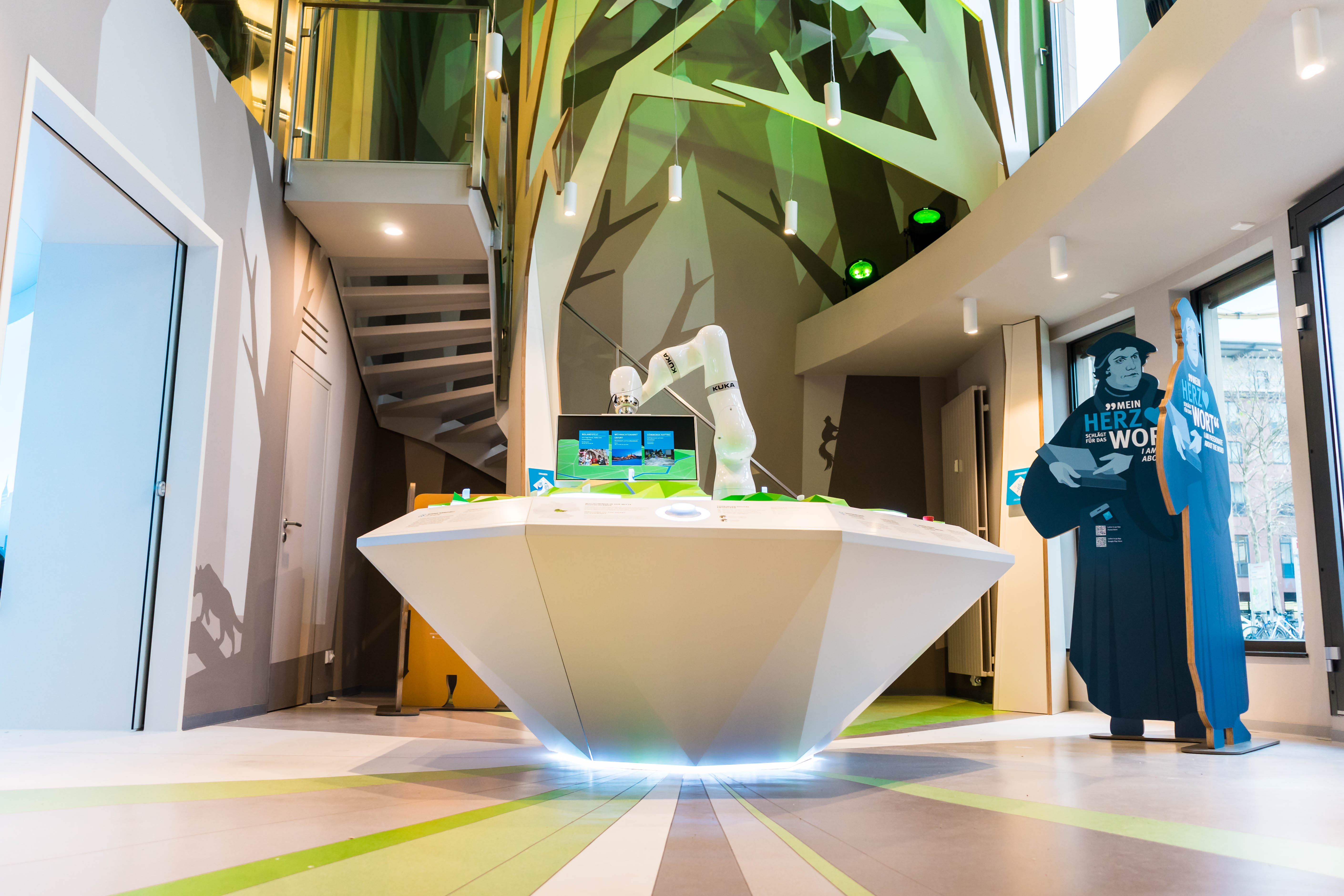Click here for the online store.
Mühlhausen
A Fleeting Performance
The medieval imperial city of Mühlhausen with its eleven Gothic churches, an intact city wall with walkways and fortification towers and burgher houses from various epochs was regarded as a centre for Protestant sacred music. After his organ prelude on Easter Sunday in 1707, Bach succeeded his predecessor, Georg Ahle, and reported for duty in the Divi Blasii Church.
The substantially higher remuneration of 85 guilders, which was unusually generous at that time, might have figured into Johann Sebastian Bach’s decision to start a family. On October 17th 1707, he married his second cousin Maria Barbara Bach in Dornheim near Arnstadt.

TIPP
Bach Tours
Foto: Thüringer Tourismus GmbH
In the aftermath of a guest performance for the Weimar dukes in June 1708, Johann Sebastian Bach was offered the position of court organist and “lacquey” with a salary of 150 guilders. The increased cost of living in Mühlhausen after yet another city fire in May of 1707, the meagre prospects of obtaining a new organ, and the opportunities associated with an improved financial situation convinced Johann Sebastian Bach to leave Mühlhausen already in June of 1708.
Fotos:
(1) Old Chancellery Mühlhausen, Foto: Clemens Bauerfeind, weimar GmbH
(2) Bach bust und Divi Blasii Church, Foto: Clemens Bauerfeind, weimar GmbH
(3) Marienkirche, Foto: Robert Elias Wachholz, weimar GmbH














